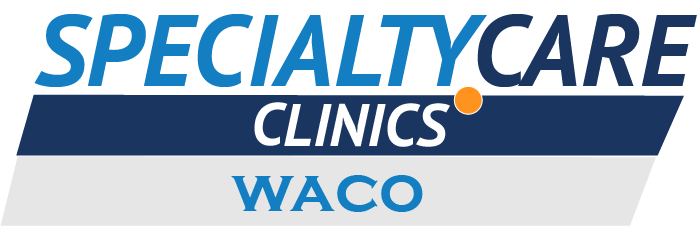A herniated disc, often referred to as a “slipped” or “ruptured” disc, occurs when the soft, jelly-like center of a spinal disc pushes through a tear in its tougher outer casing. This can irritate nearby nerves, leading to pain, numbness, or weakness in the back, neck, arms, or legs. While the discomfort can be significant, the good news is that various spine specialists are equipped to diagnose and treat this condition, guiding you toward relief and recovery.

Understanding Your Spine: The Role of Different Specialists
When seeking care for a herniated disc, you might encounter several types of medical professionals, each playing a vital role in comprehensive spine care:
1. Orthopedic Surgeons
Orthopedic surgeons specialize in conditions affecting the musculoskeletal system, which includes bones, joints, ligaments, tendons, and muscles. Many orthopedic surgeons further specialize in spine surgery, focusing specifically on disorders of the spine.
- Role in Herniated Disc Treatment: Orthopedic spine surgeons are experts in both non-surgical and surgical interventions. They can diagnose the extent of disc herniation using imaging like MRI, recommend conservative treatments such as physical therapy or medication, and, if necessary, perform surgical procedures like microdiscectomy, laminectomy, or spinal fusion.
2. Neurosurgeons
Neurosurgeons are specialists in conditions affecting the brain, spinal cord, and peripheral nerves. Given that a herniated disc often compresses spinal nerves or the spinal cord, neurosurgeons are highly qualified to treat these conditions.
- Role in Herniated Disc Treatment: Similar to orthopedic spine surgeons, neurosurgeons diagnose herniated discs and offer a range of treatments. Their expertise in delicate nerve structures makes them particularly adept at surgical procedures that involve relieving pressure on the spinal cord and nerves, such as microdiscectomy.
3. Physiatrists (Physical Medicine and Rehabilitation Physicians)
Physiatrists are medical doctors who specialize in restoring function to people with injuries or disabilities affecting the brain, spinal cord, nerves, bones, joints, ligaments, muscles, and tendons. They focus on non-surgical management and rehabilitation.
- Role in Herniated Disc Treatment: Physiatrists often serve as the primary point of contact for conservative management of herniated discs. They prescribe physical therapy, medication, and may perform spinal injections (like epidural steroid injections) to alleviate pain and inflammation. They coordinate care with other specialists and help patients develop long-term rehabilitation plans.
4. Pain Management Specialists
These are physicians (often anesthesiologists, neurologists, or physiatrists) who have advanced training in diagnosing and treating all types of pain.
- Role in Herniated Disc Treatment: Pain management specialists focus on alleviating the severe pain associated with herniated discs, especially when conservative methods haven’t provided sufficient relief. They commonly perform procedures such as epidural steroid injections, nerve blocks, and radiofrequency ablation to manage pain and improve a patient’s quality of life.
5. Physical Therapists
While not medical doctors, physical therapists are crucial members of the spine care team. They are healthcare professionals who help patients reduce pain and improve or restore mobility.
- Role in Herniated Disc Treatment: Physical therapy is a cornerstone of non-surgical treatment for most herniated discs. Therapists design customized exercise programs to strengthen core muscles, improve flexibility, correct posture, and reduce pressure on the affected nerve. They also employ modalities like heat, ice, and manual therapy.
6. Chiropractors
Chiropractors focus on the diagnosis, treatment, and prevention of musculoskeletal disorders, particularly those affecting the spine. They use hands-on spinal manipulation and other alternative treatments.
- Role in Herniated Disc Treatment: Chiropractors may provide spinal adjustments to improve spinal alignment and reduce nerve irritation. This approach is often considered for mild to moderate herniations as part of a conservative treatment plan.
Diagnosis and Treatment Approaches
A thorough diagnosis typically involves a physical examination, a review of your medical history, and often imaging tests such as an MRI, which provides detailed images of your spinal discs and nerves.
Conservative (Non-Surgical) Treatments:
Most herniated discs improve with non-surgical treatments over a few weeks or months. These may include:
- Rest and activity modification: Avoiding activities that worsen pain.
- Medications: Over-the-counter pain relievers (NSAIDs), muscle relaxants, or prescription pain medications.
- Physical therapy: Targeted exercises, stretches, and manual therapy.
- Spinal injections: Epidural steroid injections to reduce inflammation and pain around the nerve root.
- Alternative therapies: Acupuncture, massage therapy, or chiropractic care.
Surgical Treatments:
Surgery is typically considered if conservative treatments fail to relieve symptoms after a significant period (usually 6-12 weeks), or if there are signs of progressive neurological deficits like increasing weakness, numbness, or loss of bowel/bladder control (which is an emergency). Common surgical procedures for herniated discs include:
- Microdiscectomy: A minimally invasive procedure where the surgeon removes the herniated portion of the disc that is pressing on the nerve. This is the most common surgery for lumbar herniated discs.
- Laminectomy/Laminotomy: Removal of part or all of the lamina (a bony arch of the vertebra) to create more space for the spinal cord and nerves.
- Artificial Disc Replacement: In select cases, the damaged disc may be replaced with an artificial one, preserving some motion.
- Spinal Fusion: Involves joining two or more vertebrae permanently to stabilize the spine, typically used for severe degeneration or instability.
Choosing the Right Specialist for You
The best approach often involves a multidisciplinary team. Your primary care physician can be your first point of contact and can refer you to the appropriate specialist based on your symptoms and the severity of your condition. It’s common to start with conservative treatments under the guidance of a physiatrist or a pain management specialist. If these non-surgical options prove ineffective, a spine-focused orthopedic surgeon or neurosurgeon will assess if surgery is a suitable next step.
Remember, seeing a surgeon does not automatically mean you will undergo surgery. They are trained to evaluate all treatment options, surgical and non-surgical, to determine the most effective path for your individual needs.
Conclusion
Living with a herniated disc can be challenging, but with the right spine specialists, effective diagnosis, and a tailored treatment plan, significant relief and a return to a pain-free life are often achievable. Don’t hesitate to seek professional medical advice to explore your options and embark on your journey to recovery.
Related FAQs
1. What is the difference between an orthopedic spine surgeon and a neurosurgeon for herniated discs?
Both orthopedic spine surgeons and neurosurgeons are highly qualified to treat herniated discs, including performing surgery. Orthopedic surgeons specialize in the musculoskeletal system (bones, joints, ligaments), while neurosurgeons specialize in the brain, spinal cord, and nerves. For spinal conditions, their expertise often overlaps significantly, and the choice often comes down to individual preference or referral patterns.
2. How long does it typically take to recover from a herniated disc without surgery?
Most people experience significant improvement in symptoms within 6 to 12 weeks with conservative treatment. However, full recovery and strengthening can take several months.
3. When is surgery recommended for a herniated disc?
Surgery is usually recommended if severe pain persists after 6-12 weeks of conservative treatment, if there is progressive neurological deficit (e.g., worsening weakness, numbness), or if you experience cauda equina syndrome (a rare but serious condition involving loss of bowel/bladder control).
4. Are spinal injections painful?
Spinal injections, such as epidural steroid injections, are typically performed with local anesthetic to minimize discomfort. You might feel a brief sting or pressure during the procedure. Many patients find the temporary discomfort well worth the pain relief they experience afterward.
5. Can a herniated disc heal completely on its own?
Yes, in many cases, a herniated disc can shrink or resorb over time, and the body’s natural healing processes can reduce inflammation around the nerve, leading to symptom resolution. Conservative treatments support this natural healing process.
If you are experiencing symptoms of a herniated disc, don’t let pain control your life. Visit our website https://sccwaco.com/ to learn more about our comprehensive spine care services and the specialists available to help you. For a personalized consultation and to take the first step towards relief, please call us (254) 308-7868 today. Our dedicated team is ready to assist you.
